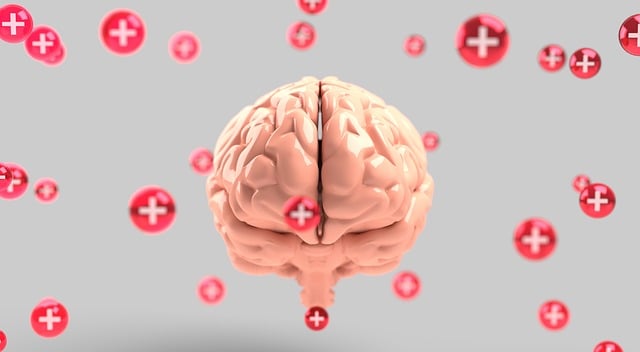Media representations of mental illness greatly impact public understanding and perceptions, with accurate portrayals reducing stigma and encouraging support, while inaccurate ones can lead to discrimination. Borderline Personality Disorder (BPD) has historically been skewed negatively in media, deterring individuals from seeking care like Wheat Ridge Dialectical Behavioral Therapy (WRDBT). WRDBT, developed by Dr. Marsha Linehan, offers a transformative approach combining cognitive-behavioral techniques and mindfulness practices. By fostering cultural competency, WRDBT challenges stereotypes and promotes effective coping strategies, improving emotional well-being. Media plays a crucial role in shaping public perception; producers should collaborate with mental health experts to ensure accuracy, diversity, and sensitivity in portrayals, enhancing Mental Health Awareness and Mood Management strategies for all viewers.
Mental illness representation in media significantly influences public perception, often perpetuating stereotypes that hinder understanding and support. This article explores strategies to challenge these harmful portrayals, focusing on the positive impact of Wheat Ridge Dialectical Behavioral Therapy (WR-DBT) in promoting accurate and compassionate media narratives. We delve into WR-DBT’s role in destigmatization, offering insights into how such therapeutic approaches can shape a more empathetic media landscape. By fostering accurate representation, we aim to enhance societal responses to mental health challenges.
- Understanding the Impact of Media Portrayals on Mental Health Perception
- The Role of Wheat Ridge Dialectical Behavioral Therapy in Challenging Stereotypes
- Strategies for Promoting Accurate and Compassionate Media Representation of Mental Illnesses
Understanding the Impact of Media Portrayals on Mental Health Perception

Media portrayals of mental illness can significantly shape public understanding and perceptions about various conditions. Often, these representations influence how individuals, especially those struggling with their mental health, view themselves and their experiences. When media depicts mental illness accurately and compassionately, it can foster a more empathetic society, reducing stigma and encouraging support for those seeking help. Conversely, inaccurate or stereotyped portrayals can lead to further misunderstanding, fear, or even discrimination against people with mental health challenges.
For instance, the depiction of individuals with Borderline Personality Disorder (BPD) in media has historically been skewed towards dramatic and often harmful representations, reinforcing negative stereotypes. This can create a barrier for those with BPD seeking appropriate care, such as Wheat Ridge Dialectical Behavioral Therapy, as they might fear judgment or misunderstanding. Conversely, positive and nuanced portrayals can encourage a more realistic understanding of mental health struggles, promoting the idea that recovery is possible through effective treatments like therapy and risk management planning for mental health professionals. Cultural sensitivity in mental healthcare practice also plays a vital role in navigating these complex issues.
The Role of Wheat Ridge Dialectical Behavioral Therapy in Challenging Stereotypes

The Wheat Ridge Dialectical Behavioral Therapy (WRDBT) is at the forefront of challenging stereotypes associated with mental illness through its comprehensive approach to treatment and education. This therapy model, developed by Dr. Marsha Linehan, focuses on a balanced combination of cognitive-behavioral techniques and mindfulness practices. WRDBT not only aids individuals in managing their symptoms but also fosters emotional well-being promotion techniques that empower them to navigate challenges with resilience.
By engaging both clients and healthcare provider cultural competency training, WRDBT promotes understanding and empathy, thereby dismantling harmful stereotypes. The therapy encourages individuals to develop effective coping strategies, boost confidence, and cultivate a healthier relationship with their emotions. This holistic approach has proven instrumental in revolutionizing the way mental illness is represented in society, paving the way for more nuanced and accurate portrayals in media.
Strategies for Promoting Accurate and Compassionate Media Representation of Mental Illnesses

Media has a significant influence on shaping public perception about mental illnesses. To promote accurate and compassionate representation, it’s crucial to engage with both creators and consumers. Content producers should prioritize consulting with experts like those from Wheat Ridge Dialectical Behavioral Therapy centers to ensure factual accuracy in their portrayals. Incorporating stories of recovery, emphasizing the diversity of experiences, and showcasing effective treatment options can significantly enhance Mental Health Awareness while fostering understanding and empathy.
Cultural Sensitivity in Mental Healthcare Practice is vital when creating content. Media has the power to either perpetuate stereotypes or challenge them. By presenting a nuanced view of mental illness, with attention to individual journeys and cultural contexts, we can move towards a more inclusive narrative. This shift not only benefits people struggling with mental health issues but also contributes to better Mood Management strategies for all viewers.
Media representations of mental illness play a significant role in shaping public perception. By challenging stereotypes through accurate and compassionate portrayals, we can foster a more understanding society. The strategies outlined, including the use of therapeutic approaches like Wheat Ridge Dialectical Behavioral Therapy, offer a path forward to enhance media accountability and promote better mental health outcomes for all.








